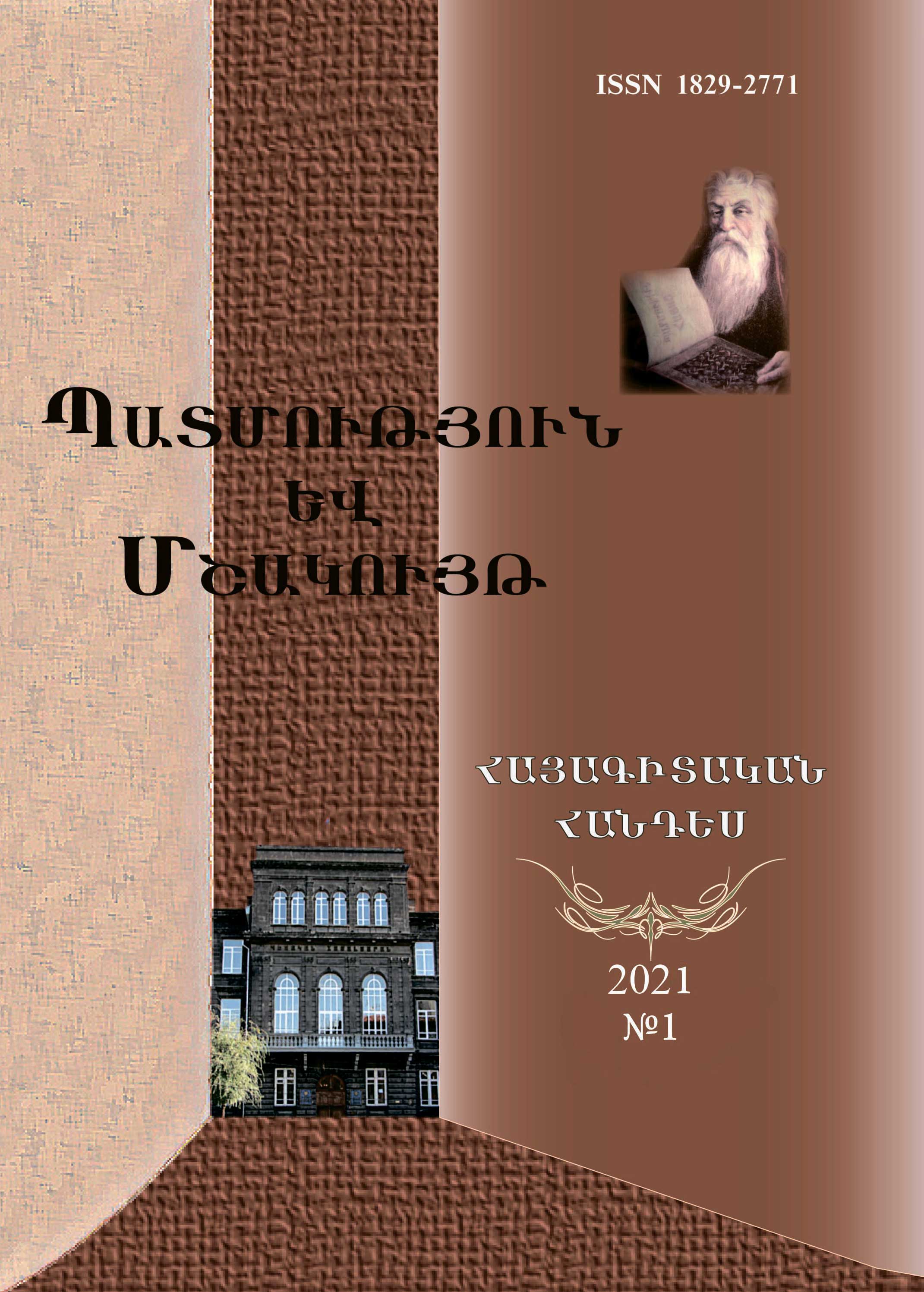The Search for the Ethnogenesis of Azerbaijanis and Cultural Policy in the NKAO
Keywords:
NKAO, USSR, Agvank, national and state policy, ethnogenesis, Eastern Transcaucasia, A. I. Denikin, Shushi, Agvan theory, Medo-Atropatenian theory, Turkic theoryAbstract
With the creation of the Soviet Union and the Sovietization of Transcaucasia, the process of nation-building in Azerbaijan entered a new phase. The Soviet leadership considered Kemalist Turkey and Azerbaijan as a means of spreading socialism in the Muslim East, which is the reason for the special policy of the Union center towards Azerbaijan. Soviet Azerbaijan went through several stages of identity search. In Stalin’s understanding of the nation, the territory had an important place. The state policy of Soviet Azerbaijan was carried out by the logic of this understanding. The policy of the Azerbaijani authorities towards the NKAO also had a component of cultural appropriation. “Albanization” of the cultural layer of Artsakh, especially churches, spiritual structures, had the task of excluding the authenticity of the autochthonousness of local Armenians, calling the Azerbaijanis the true “historical master” of the NKAO territory. The logic of this policy, which dates back to the Soviet period, Azerbaijan continues to this day.
Downloads
Published
Issue
Section
License
Copyright (c) 2021 Artak Khachatrian

This work is licensed under a Creative Commons Attribution-NonCommercial-ShareAlike 4.0 International License.

